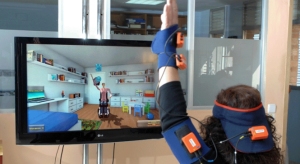
It’s an odd combination of words, “Video Games and Medicine,” yet thanks to the Oculus Rift and games of increasing complexity, it’s becoming a more common one.
There’s been a fair bit of chatter around the medical applications of the Oculus Rift – a virtual reality headset that allows the user to be entirely immersed in whatever digital experience it’s projecting. The terminally ill or disabled can relax and live vicariously through footage of a South-East Asian holiday. The mentally handicapped can be run through simulations that are designed to stimulate brain activity and help with growth. These applications can be used on people with PTSD, young kids struggling with development and so much more.
While Virtual Reality is a new avenue where video games and medical practice can overlap, it certainly isn’t the only avenue. A study out of Florida State University by Val Shute found that the popular Valve title ‘Portal 2’ was better for training the brain and better human cognition than Lumosity, a popular online service designed to stimulate brain activity. And hey, Portal 2 has the surprising side effect of being ridiculously fun.
It doesn’t stop there – a great mini doco from National Geographic shows how researchers used the principles of video games to try and better treat stroke patients. This is definitely something you should watch, and you can check it out here
So much talk about oculus rift these days, really excited to see which direction it heads in.
LikeLike
Have you seen the anime “Sword Art Online”? The story line is about this virtual reality video game with a device pretty similar (if not the same idea) as the occulus rift. But the game maker decided to pull some sick prank and trapped everyone in the game until they clear it. And if you die in-game, you die in real life. I’m not saying occulus rift will kill us all, but it could be bad in a very dramatic and non realistic sense haha though having said that, I would still love to try it one day!
LikeLike